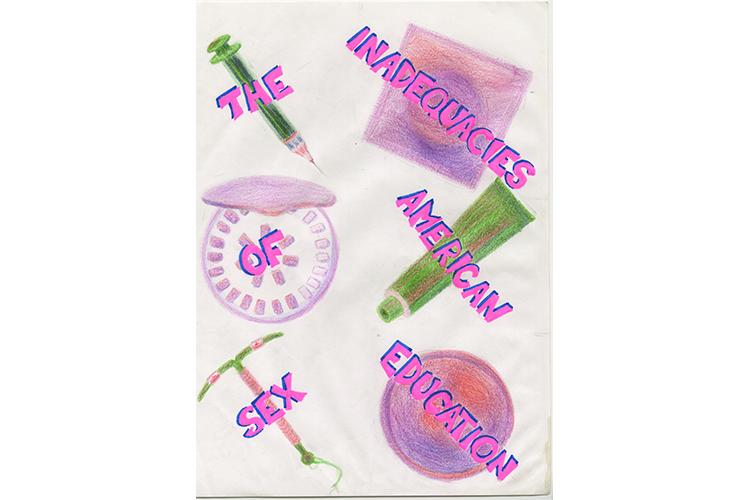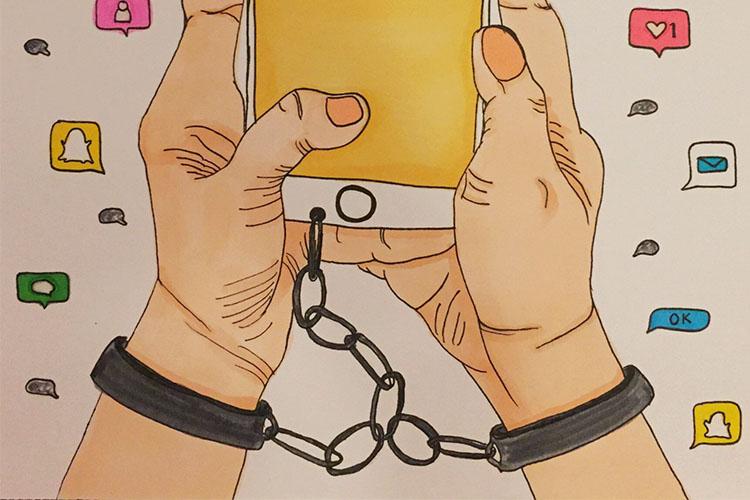Busy.
That’s the first word that comes to mind when thinking of the fall season. As school nally settles in with September trickling in, the stress of homework, tests, quizzes, projects (and for seniors, college applications) looms over the Upper School. With all this commotion and stress levels running high, conflicts are bound to come up along the way.
Nationally, the presidential election, only a little over a month away now, continues to spark heated debates over which candidate is the most qualified to lead the country.
Even within our own community, eligible upperclassmen continue to ponder over who they will cast their vote for in November. And with a plethora of social events and homecoming season also just around the corner, tensions are getting high, and drama will soon characterize our hallowed halls, as it always does this time of year.
Conflict is inevitable; everyone deals with it on a day to day basis. And with the right approach, conflict actually has the potential to instigate useful conversation and thus, progress.
Handling conflict in a way that is both productive and meaningful can be challenging. As a result, we have come up with a few ground rules to follow when dealing with contentious conversation.
According to Psychology Today, there are a few proven key points to do so. Often, when our opinion doesn’t match up with someone else’s, we get defensive in attempts to validate our belief. However, while discussion is important in handling conflicts, listening is equally vital.
Upper School Interim Counselor Judy Ware stresses the significance of accurate communication.
“Repeat what you think you’ve heard. Check it out. That gives the person a chance to clarify,” she said.
Avoid interrupting the other person; instead focus on what they’re saying. Facilitating both listening and speaking in any confrontation will help ensure that both sides are heard and that a sense of equilibrium is maintained.
If the conversation is spiraling out of control, another tip is to simply stop talking. “Ask the person if you can have a little bit of time to think about what they just said. ‘Could I just process that for a second?’ Ask for permission to do that,” Ware said.
As an argument intensifies, so do the people’s emotions, which often makes it extremely difficult to walk away from the conversation.
However, there’s nothing wrong with taking a step back and regrouping later. Some conflicts unfortunately cannot be fixed with one conversation.
“You really need to assess your own thoughts about the issue in as neutral a way as possible, as if you are standing on a hill and looking down on something. That way, your response is couched in a way [as]not to escalate conflict.”
Once you have regrouped, sit down with the other party and lay out what the conflict is from each of your point of views.
Avoid public confrontations and lean more towards intimate, private locations where it will be easy to be open and vulnerable with one another if necessary.
“If the goal of a public confrontation is to humiliate someone then mission accomplished. But if the goal is to repair a relationship, then that’s the furthest thing away. It will never work. It’s just guaranteed to charge the atmosphere with so much negativity that nothing good can come from it,” Ware said.
Rather than assigning blame to one another, try to directly acknowledge the conflict at hand and brainstorm solutions collectively.
In terms of moving forward, make sure that each of you accept your agreement and feel validated and heard, for this will reduce the likeliness of another similar misunderstanding from occurring.
Be sure to plan for future conflict. “It’s only when people cool down and reason through problems that they nd a meeting place,” Ware said.
As the craziness of fall continues to occupy your planbook and social calendar, stay alert and don’t get bogged down by it all. Find a way to tackle each issue one by one in the most effective way possible.
Even if you find out your best friend is a Trump supporter or that your mortal enemy is getting asked to homecoming by the guy you thought was “the one,” I promise, it’s not the end of the world.








